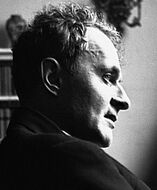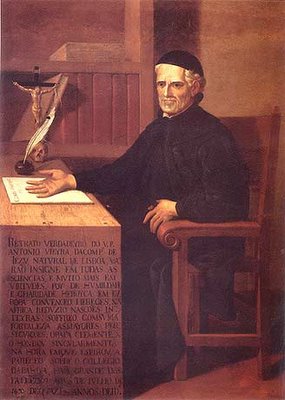 Vercors (1902-1991)
Vercors (1902-1991)
Não vinha rigorosamente todas as noites, mas não me lembro de uma única noite em que ele nos tenha deixado sem falar. Inclinava-se para o fogo e enquanto oferecia ao calor das chamas um pouco de si próprio, a sua voz sussurrante fazia-se ouvir suavemente e esses serões foram um interminável monólogo sobre os assuntos que lhe povoavam o coração — o seu país, a música, a França. Nem uma só vez tentou obter de nós qualquer resposta, uma aprovação qualquer, ou mesmo um sorriso. Não falava durante muito tempo — pelo menos, nunca durante mais tempo do que na primeira noite. Pronunciava algumas frases, por vezes interrompidas por silêncios, outras vezes encadeando-se com a continuidade monótona de uma oração. Ora se mantinha imóvel contra a lareira, como uma cariátide, ora se aproximava, sem deixar de falar, de um objecto ou de um desenho na parede. Depois, calava-se, inclinava-se e desejava-nos uma boa noite.
Uma vez (era no tempo das suas primeiras visitas), disse:
— O que haverá de diferente entre um fogo do meu país e este fogo? A lenha, as chamas, a chaminé são semelhantes naturalmente. Mas a luz, não. A luz depende dos objectos que ilumina, dos habitantes desta sala, dos móveis, das paredes, dos livros nas prateleiras...
— Porque gostarei tanto desta sala? — disse, pensativo. Não é que seja de uma grande beleza, desculpem-me!... — E riu: — Isto é, não é uma
sala de museu... Quanto aos móveis, não se pode dizer: que maravilha!... Não... Mas esta sala tem uma alma. Toda esta casa tem uma alma.
Estava voltado para as prateleiras da estante. Numa breve carícia, os seus dedos percorriam as lombadas dos livros.
— ... Balzac, Barres, Baudelaire, Beaumarchais, Boileau, Buffon... Chateaubriand, Corneille, Descartes, Fénelon, Flaubert... La Fontaine, France, Gautier, Hugo... Que convite! — disse com um ligeiro riso, abanando a cabeça. — E cheguei apenas à letra H!... Nem Molière, nem Rabelais, nem Racine, nem Pascal, nem Stendhal, nem Voltaire, nem Montaigne, nem todos os outros!... — Passava lentamente pelos livros e, de vez em quando, deixava escapar um imperceptível «Ha!» quando, suponho eu, lia um nome que não pensava encontrar. — Nos Ingleses —, continuou, — pensa-se imediatamente: Shakespeare. Nos Italianos: Dante. Em Espanha: Cervantes. E nós, de imediato: Goethe. Depois, é necessário procurar. Mas, se dizemos: e a França? Então, quem surge imediatamente? Molière? Racine? Hugo? Voltaire? Rabelais? ou outro? Avolumam-se, qual multidão à entrada de um teatro. Quem se deve deixar entrar em primeiro lugar?
Vercors, O Silêncio do Mar
.









